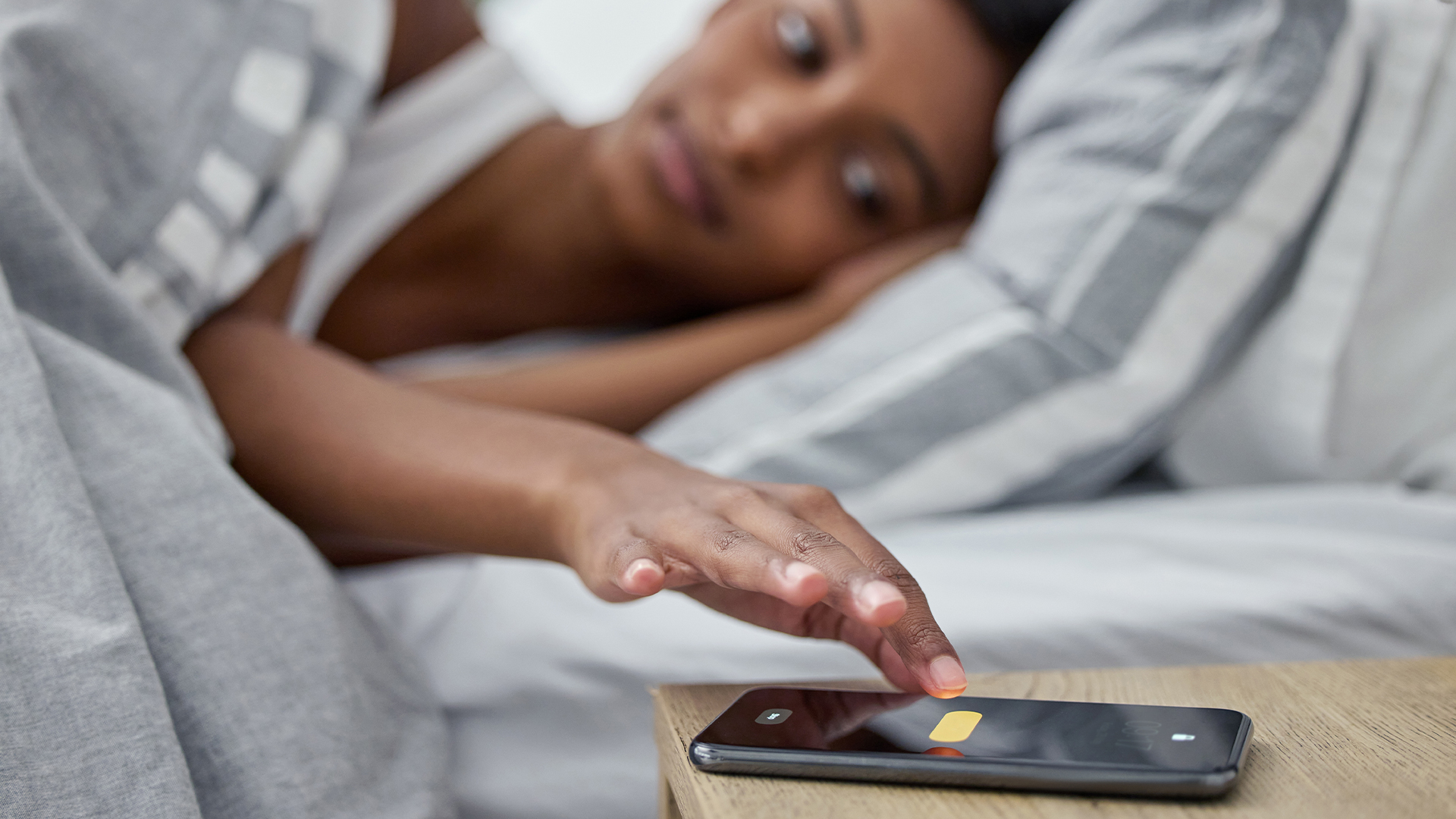Hitting 'snooze' can boost morning cognition, study hints
Did you hit "snooze" this morning? You're not alone, and the extra sleep may improve your brain function after getting up, a study suggests.

Get the world’s most fascinating discoveries delivered straight to your inbox.
You are now subscribed
Your newsletter sign-up was successful
Want to add more newsletters?
Join the club
Get full access to premium articles, exclusive features and a growing list of member rewards.
Do you usually hit the "snooze" button when your alarm blares in the morning? Good news: You're not alone, and those extra Zs could boost your cognitive performance when you first get up, new research suggests.
In a study of more than 1,700 surveyed adults worldwide, published Wednesday (Oct. 18) in the Journal of Sleep Research, 69% said they hit the snooze button or set multiple alarms at least "sometimes."
Then, in an experiment with 31 habitual "snoozers," the study authors found that hitting snooze improved some of these individuals' performance on cognitive tests. However, it didn't appear to impact their mood, how sleepy they felt in the morning or the normal increase in the stress hormone cortisol that happens within the first hour of waking and helps prepare the body for the day ahead.
"Snoozing for 30 minutes in the morning does not have any major negative effects on the sleep that night or how tired one feels when waking up," Tina Sundelin, lead study author and psychologist at Stockholm University in Sweden, told Live Science in an email. "For those who are drowsy in the morning, such as evening people, and find that snoozing helps them wake up, the study shows that they may actually be more objectively alert [meaning that they performed better on the cognitive tests] after snoozing — even if they don't feel more or less sleepy," she said.
Related: Scientists may have found the missing link between heart disease and sleep problems
Ever wonder why some people build muscle more easily than others, or why freckles come out in the sun? Send us your questions about how the human body works to community@livescience.com with the subject line "Health Desk Q," and you may see your question answered on the website!
Getting a good night's sleep is important for our general health and well-being, but many people regularly don't get enough sleep. About one-third of U.S. adults report sleeping less than the recommended seven or more hours a night. Some people hit snooze to ease the sting of waking up abruptly or to get a few extra minutes of sleep, but little is known about the health impacts of this habit.
In the new study, 1,732 adults were asked to describe their waking habits. On average, the people who reported at least occasional snoozing spent around 22 minutes sleeping after their first alarm went off. These individuals were around six years younger and almost four times more likely to be night owls than those who reported that they never hit snooze, the authors found. They were also more likely to sleep for a shorter period of time during the night and to experience drowsiness in the morning than non-snoozers.
Get the world’s most fascinating discoveries delivered straight to your inbox.
For the 31 regular snoozers in the second leg of the study, snoozing for 30 minutes either improved or didn't affect their performance on cognitive tests they completed when they woke up, compared with when they were not allowed to snooze. These tests included basic arithmetic questions and having to memorize a list of words and later recognize them amongst new words.
When allowed to snooze, the participants were less likely to wake up from the deepest stage of sleep — called slow-wave sleep — than they were when they had to wake up right away. Waking during slow-wave can lead to sleep inertia, meaning the groggy feeling you get as the body transitions from sleep to waking.
The study was limited in that the experiment was small and the survey portion relied on people self-reporting their sleeping and waking habits. However, the team hopes the findings will open doors for future research into people's waking habits, such as the different ways in which snoozers wake up.
"Perhaps something like a light alarm (the kind that slowly makes the room brighter) would work in a similar way but without having several abrupt wakeups," Sundelin said. The team would also like to explore the potential long-term effects of snoozing and to study "extreme snoozers," who snooze for up to two hours each morning, she said.
This article is for informational purposes only and is not meant to offer medical advice.

Emily is a health news writer based in London, United Kingdom. She holds a bachelor's degree in biology from Durham University and a master's degree in clinical and therapeutic neuroscience from Oxford University. She has worked in science communication, medical writing and as a local news reporter while undertaking NCTJ journalism training with News Associates. In 2018, she was named one of MHP Communications' 30 journalists to watch under 30.
 Live Science Plus
Live Science Plus










